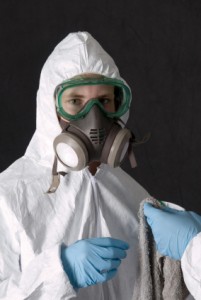 You’ve undoubtedly heard horror stories about toxic black mold invading homes like a sinister monster and destroying the health and happiness of families. Black mold can be extremely hazardous to your health, and is more common than people might know, but it can be dealt with. Mold is much more common than people think, but armed with knowledge and a better sense of awareness, you can stop a mold infestation in its tracks, and avoid the harmful side effects that may accompany it.
You’ve undoubtedly heard horror stories about toxic black mold invading homes like a sinister monster and destroying the health and happiness of families. Black mold can be extremely hazardous to your health, and is more common than people might know, but it can be dealt with. Mold is much more common than people think, but armed with knowledge and a better sense of awareness, you can stop a mold infestation in its tracks, and avoid the harmful side effects that may accompany it.
What is black mold?
There are hundreds of types of mold that grow in homes, and plenty of them are black. While color is a distinguishing trait of the troublesome mold in question, it isn’t always the best means of identification. When professionals use the term “black mold,” they are referring to one specific type of mold, Stachybotrys chartarum. This mold isn’t jet black as the name would suggest. Instead, it is greenish black in color, or sometimes even gray.
Is black mold toxic?
Black mold itself is not poisonous, but it is toxigenic. This means that black mold is capable of producing toxins called mycotoxins. These threatening toxins attach to the reproductive component of the mold, called spores. The spores drift through the air, searching for a new spot to colonize. When you breathe in spores, or the spores come in contact with your skin, health problems may arise. Depending on your health and sensitivity, you may not experience any symptoms. Unfortunately, for many people these toxins can lead to severe allergies, headaches, or respiratory problems. The good news is, spores are generally only released when the mold is disturbed, and even if spores are released, they may not contain mycotoxins. This does not mean that you should ignore the presence of mold.
How do I know if I have black mold in my home?
Black mold grows best in dim, damp, and warm environments. One of the best ways to detect the presence of mold is to notice strange smells. Black mold gives off an earthy, musty, rotting smell, and it is generally a pretty strong odor. Check for signs of mold in areas that may have experienced recent flooding, as this can create a prime habitat for mold growth. If you see signs of any type of mold, it is best to contact a professional for identification and treatment.
Contact Environmental Consulting and Contracting Group
If you or a family member suspects the presence of black mold or any other type of mold in your home, contact the professionals at Environmental Consulting and Contracting Group. With more than 30 years in the mold remediation industry, we have the experience and tools to help you. Contact us at 410-258-3579 or 1-877-591-MOLD (6653).
Be sure to follow us on Facebook, Twitter, and Pinterest!
Tags: Black Mold

